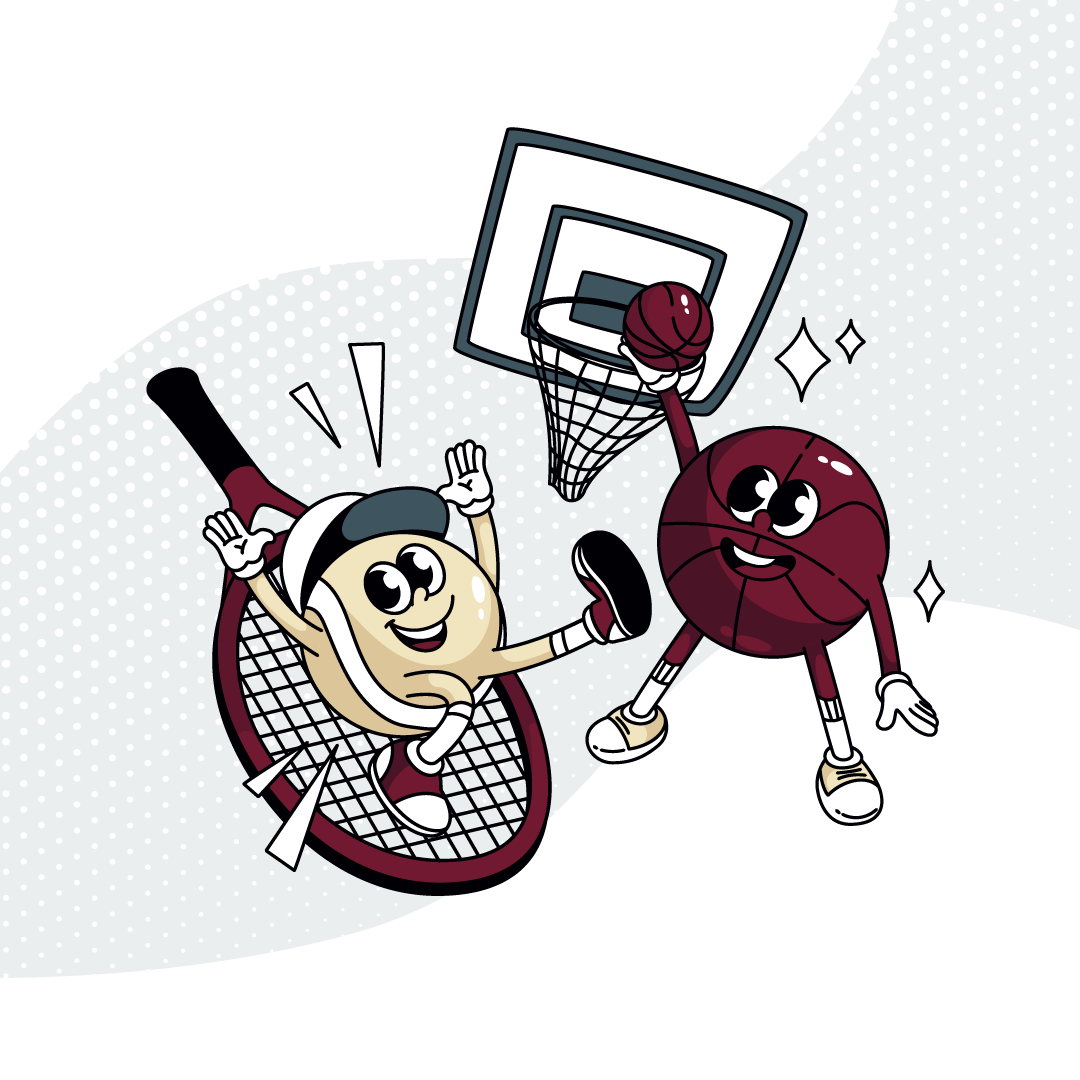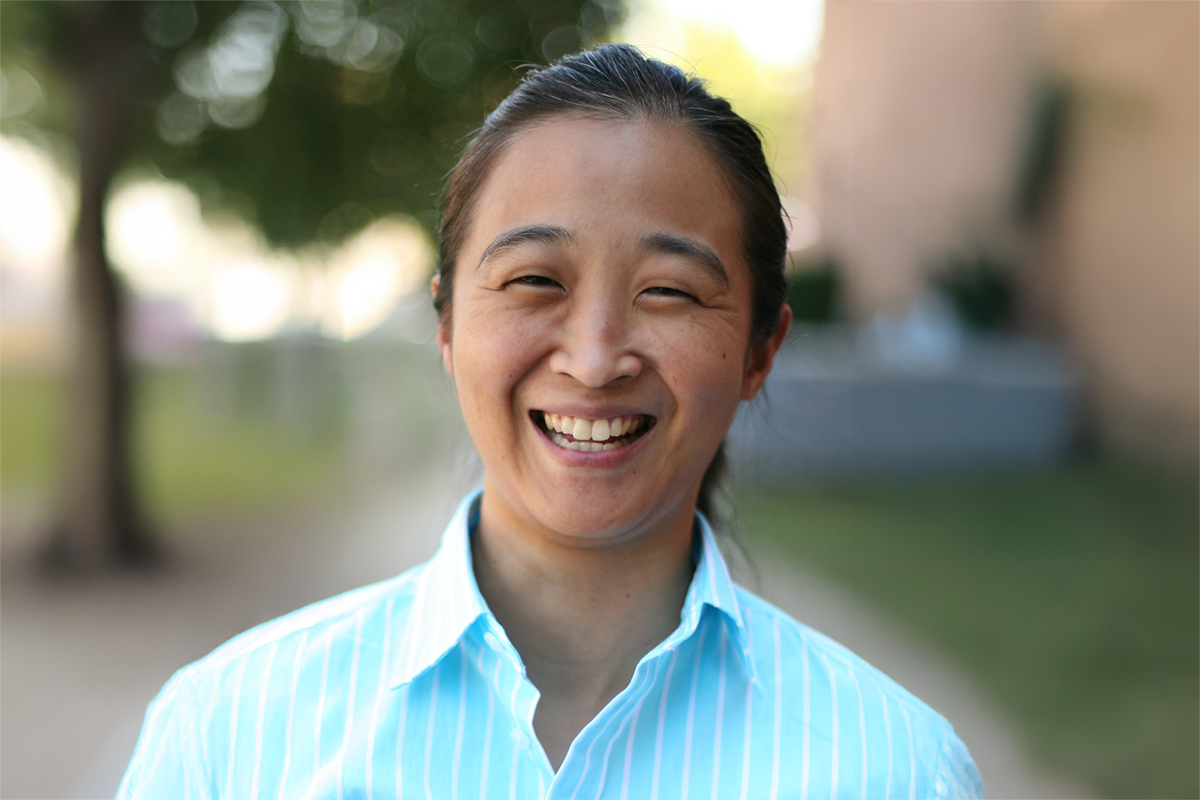
7 minute read
FINDING COMMUNITY THROUGH SPORT
By Melissa Powell
When Associate Professor of Sport Management Dr. Amy Chan Hyung Kim first arrived in Columbus, Ohio, for her doctoral studies, she found herself in an unfamiliar country, far from her friends, family, and home in South Korea. The challenge of adapting to a new culture and making connections was daunting.

“It was hard to socialize and feel a sense of belonging at first,” Kim said. “But I love sports, so I started finding clubs and sport leagues, and that’s when I started to feel a sense of community, camaraderie, and an overall better feeling about being here.”
The experience of acculturating to the U.S. through sport was pivotal for Kim. “Sport was one of the most crucial things that helped me go through that process, and it was the same when I got a job at FSU about a decade ago.” It wasn’t just about physical activity; for Kim, sport was a powerful social connector. “As soon as I joined local tennis leagues, I found great friends and got useful information about the area, so it was very functional for me and meaningful, too, because it was a really welcoming community.”
This personal journey inspired Kim to devote her career to researching how sport can have the same transformative impact on others, particularly for underserved groups. Now, as co-director of the Center for Sport, Health, and Equitable Development, Kim focuses on how sports participation can enhance personal and community health and well-being while addressing the barriers that prevent many from accessing these opportunities.
“My research focuses on how to manage and promote sport participation to facilitate social and psychological well-being and mental health at the individual, community, and population levels from a behavioral and social epidemiological perspective,” she explained. While some of her studies involve general populations, most of her work is dedicated to somewhat marginalized or underrepresented groups such as older adults, immigrants, international students, and people with disabilities.

BREAKING DOWN BARRIERS
Kim’s goal is to break down the barriers that prevent many people from participating in sports, whether those barriers are physical, social, or psychological. “A major barrier for older adults is physical changes in the body that come with aging, such as bone loss or functional decline that can increase one’s risk of fall,” she noted. For people with disabilities, the obstacles may be more complex.
Part of Kim’s work involves developing sport programs tailored to these needs, including “older-adult-friendly sports such as walking soccer or pickleball.”
Kim’s work goes beyond just facilitating participation; she’s interested in how sport can uniquely benefit people’s mental and social health. “Compared to unorganized physical activities such as dog walking, gardening, running or weightlifting, we found that sport participation, which involves more social interaction and competition, can be a great means to boost individual social capital, social support, and social relationships,” she said. According to her research, these social benefits have a direct impact on mental health, reducing stress, anxiety, and depressive symptoms, and increasing life satisfaction and overall happiness.

THE SCIENCE OF SPORT PARTICIPATION
To better understand how sport participation impacts mental health, Kim uses various research approaches. “I’m from a social science area, so I start with subjective measures,” she explained. “We usually do a self-report survey that has been developed to measure different types of stress, anxiety, as well as depressive symptoms.”
In addition to tools such as happiness questionnaires, Kim is collaborating with faculty at the FSU College of Medicine to incorporate scientific tools, such as testing cortisol levels through saliva samples to assess stress. “I’m also trying to see how we can use fMRI to see the evolving states of participants’ mental status throughout the participation progress,” she added.
One of her research projects involves the use of technology to engage older adults in sport. In a pilot study, her team introduced a smart soccer ball to encourage physical activity among older adults. Smart soccer balls can connect to an app to provide realtime feedback on performance and interaction with the ball. The team distributed smart soccer balls for older adults living in a community and observed their play over the course of six weeks. The pilot study, while small and experimental in nature, laid the groundwork for future research.
Another of Kim’s innovative projects involves intergenerational programming, specifically through pickleball, a sport that has seen a surge in popularity among older adults. “We developed an intergenerational pickleball program where college students acted as mentors to older adults,” Kim said. “We wanted to see how these intergenerational social interactions and physical activity programs could affect participants’ psychological, social, and physical health and well-being.” This program not only fosters physical activity, but also creates meaningful social connections across generations.
Despite the challenges faced by many of her research subjects, Kim remains hopeful about the potential of sport to create inclusive opportunities for all. “My ultimate goal of doing research is to make a positive impact on our community members, so I intentionally spend more time working with these organizations so that we can address ‘real problems’ in our community,” she says.

COLLABORATING FOR COMMUNITY IMPACT
Kim has collaborated with community partners such as the City of Tallahassee Parks, Recreation, and Neighborhood Affairs; the United States Tennis Association; and the USA Pickleball Association. Kim’s colleague and Sport Management faculty member, Katie Flanagan, has played a key role in building connections between the Center for Sport, Health, and Equitable Development and local nonprofits and sports organizations. These partnerships have provided valuable service-learning opportunities for FSU Sport Management students, who are required to volunteer with local organizations as part of their experiential learning. Over time, the relationships fostered through this volunteer work have encouraged the organizations to become more actively involved in the center’s research projects, creating a mutually beneficial collaboration between the university and the community.
“Once we build trust and show that we are here to help them, they have welcomed and supported our research efforts,” Kim said.
Her collaborations with organizations like the USA Pickleball Association and the United States Tennis Association have allowed her to provide practical solutions to real-world problems, from analyzing participation trends to strategizing how local leagues can attract more participants. These partnerships also allow her to apply her research in meaningful ways that directly benefit the community. “I want to make sure that our research impacts our community in a good way. I want to address what we’re going through in our community in our research and learn how to make that better,” she said.
Kim’s passion for inclusive sport participation extends beyond the academic realm. She views inclusivity as a personal mission that stems from her own life experience, and one that she wants to share with others. “I’m very passionate about my research. I’m proud of what we’re doing, and it’s really personal for me,” she shared. Often, she notes, lack of information on how to start or where to play can be the biggest barrier to participation. For those who may be unsure of where to begin or feel intimidated by the idea of getting involved in organized sport, Kim offers encouragement.
There are many people in the sports community willing to welcome new friends. So don’t be afraid to reach out.
And with Kim’s ongoing research and community initiatives, that sense of belonging she found through sport is becoming a reality for more people every day. ∎










